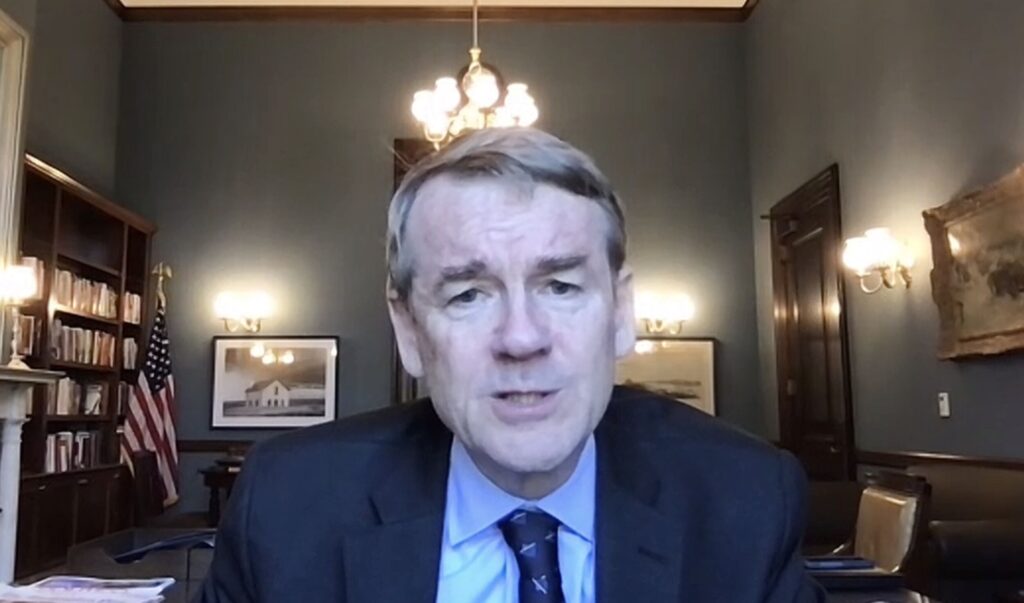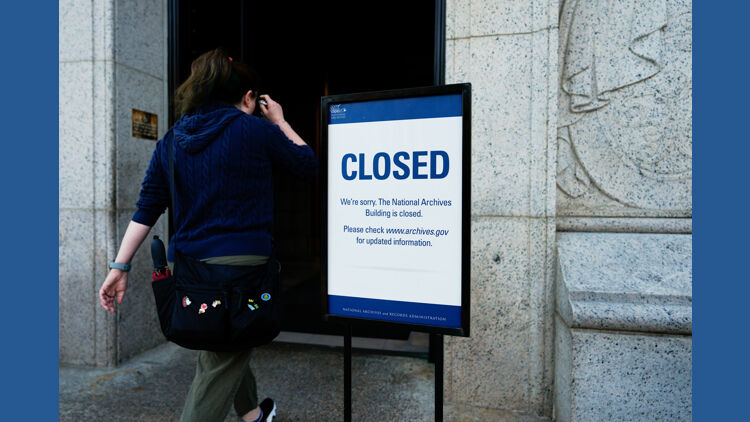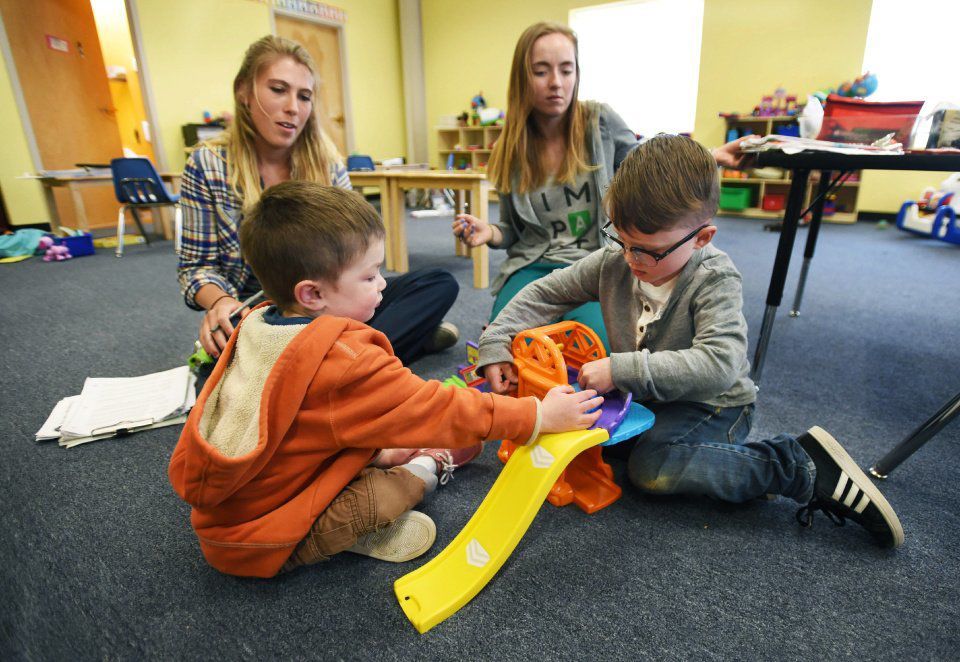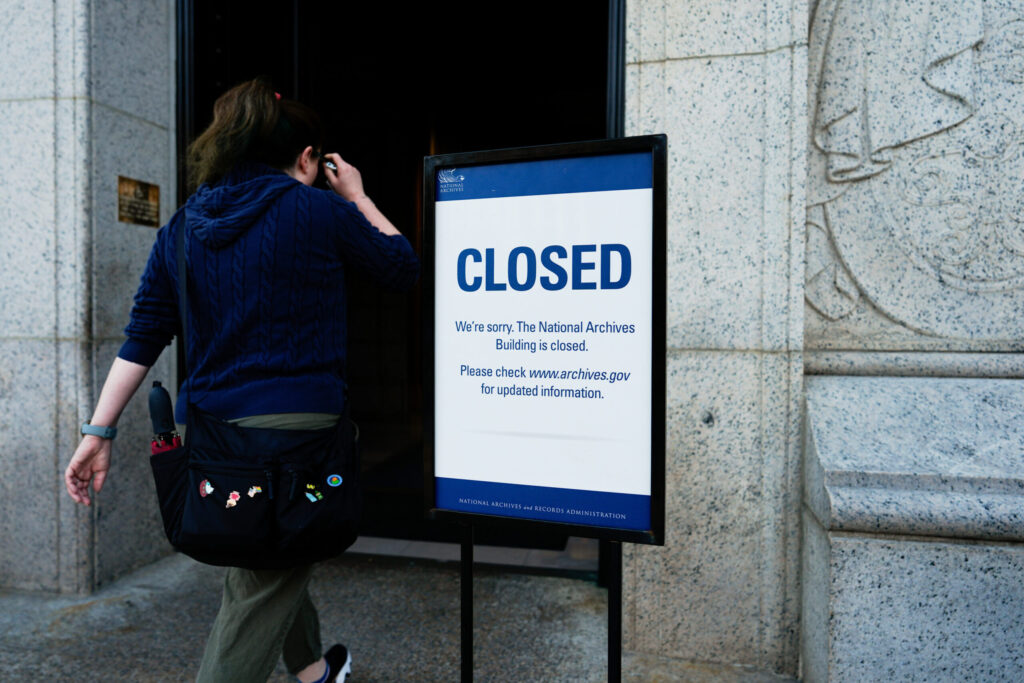Crowder wants to be really clear about how he sees the hospital provider fee, you follow?
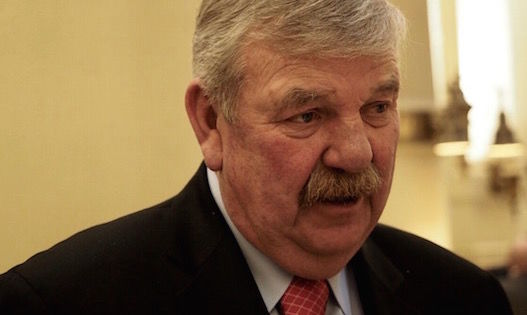
“The thing I’m trying to impress on people is we got to come out and have to have an adult conversation in this state about what direction we want to go,” said state Sen. Larry Crowder, standing on the steps of the Capitol last week.
Crowder was talking about his support for House Bill 1420, which would reclassify Colorado’s hospital provider fee in order to make room in the state general fund for additional hundreds of millions of dollars below the state spending cap put in place by the Taxpayer Bill of Rights.
Crowder, a Republican from southeast high plains Alamosa, has got himself in the middle of a fracas.
Democrats have championed the move as an overdue accounting fix that would bolster spending on essential cash-starved transportation and education projects and secure provider fee payments to hospitals for the future. Republicans decry it as a stopgap semantic trick that goes against the spirit of the Taxpayer Bill of Rights and distracts from the larger budget problem they see in steadily ballooning health care spending.
All Republicans in the Capitol save Crowder, that is. It wasn’t enough that he signaled his support early in the session, even before there was an actual hospital fee bill to consider, during the winter days when Republican leaders were trying to build a wall of resistance that would have halted debate before it really got started. Crowder has taken his apostasy a step further. He signed on this month as the sole co-sponsor of the hospital fee bill introduced at long last by Speaker of the House Dickey Lee Hullinghorst, the unvarnished liberal Democrat from Gunbarrel.
“Sen. Crowder calls it like he sees it as much as any person in the General Assembly,” said Gov. John Hickenlooper. “But if he told me he would be willing to buck the tide and stand up like this, I don’t think I would have believed him.”
Hickenlooper said he thought Crowder’s support for the bill and the fact that he has attached his name to it “changes the narrative” around the topic and bolsters the bill’s chance of passing in the Senate.
“You know, I think that people realize that here’s someone who is going to catch a lot of grief,” Hickenlooper said. “There has been tremendous pressure on him not to do this, but he thought it was important. He cares about hospitals, about rural hospitals — and he felt he had to speak up.”
Politics and opportunities
Crowder doesn’t want to talk about the politics of his stance. He takes a breath. Wind tosses the hair on his head and sweeps tobacco smoke from his lips.
“It’s not my intent to buck my party. I don’t see it that way,” he said. “ My intent is to recognize that we have a problem out there. I’m out in my district and I see what it means for these hospitals to be thinking in terms of closing due to financial straits… The reality is we don’t reimburse these hospitals dollar for dollar. They’re underfunded. So, I think, if you want to talk ideology, that’s one thing. If you want to talk actual services to real people in Colorado, that’s another.”
Crowder has been called a maverick and a free thinker. On occasion lately, he has been described with words that have a less-positive ring. It won’t stop him from saying exactly what he thinks, and in the same way, sentences that build slowly on one another. “You follow me?” is a phrase he uses often to set off paragraphs and to telegraph that he’s moving onto a new chapter of a discussion.
“In rural Colorado, are we going to continue down a path of downsizing rural hospitals or are we stabilizing? I realize I’m unorthodox, but I believe we have the opportunity now to make decisions for the future. You follow me?”
Crowder is an Army veteran, a small business owner, a farmer and rancher and seems not at all interested in climbing a career ladder at the Legislature.
Crowder represents Senate District 35, a vast region mired in rural poverty and one of the key swing districts that determine which political party controls the Senate chamber. Republicans this year hold the majority in the Senate by one vote. Democrats hold the majority in the House and they also hold the governor’s office. Crowder is up for reelection this year.
For all of those reasons and more, politics watchers in the state these days take note when Crowder has something to say. On the steps of the Capitol, he wants to talk about the link between the hospital provider fee and rural mental health.
Spending limits and serious issues
On income maps of the state, counties dark with the color of poverty cluster in Crowder’s district. According to census data, Crowder’s Alamosa County is the second-most impoverished county in Colorado. It has a 27 percent poverty rate. That’s three times the average rate of poverty in the counties represented by the top-three Republican leaders in the Senate — President Bill Cadman’s El Paso County (12 percent), President Pro Tempore Ellen Roberts’ La Plata County (11.4 percent) and Majority Leader Mark Scheffel’s Douglas County (3.9 percent).
In 2013, Crowder was the only Republican in the Senate to support Medicaid expansion. It seemed a crazy move for a Republican in the era of relentless attacks from the right on Obamacare and its mandate to expand Medicaid. Crowder said at the time that he “had no choice” but to vote for the bill, given the fact that hospitals in his district were struggling to cover large populations of residents who couldn’t pay for even basic medical treatment.
“In my district, I have nine hospitals,” he said. “Six of them are critical access hospitals. Four of them were talking about shutting their doors due to lack of funding. The Medicaid expansion helped. It pays 52 cents on the dollar, and the hospital provider fee kicks it up to 74 cents.
“You have to look at this through the eyes of a rural legislator,” Crowder continued. “If you’re in the southeast corner of the state, you’re already 70 miles from the nearest hospital. If some of our hospitals close, we’re looking at several hours to get to the nearest hospital. It creates a serious issue for me. We have to have that staple of basic care in the hospitals throughout my district.”
Crowder was holding onto a printed copy of an email while he was talking, moving it up and down at certain parts of the conversation. He never made a move to give it over, but he said it had everything to do with his support for the hospital fee reclassification.
“Last week I got a call from this teacher in southeast Colorado, and he was indicating to me that in a school there of 70 students, in his unprofessional opinion, 20 of them are suicidal. Then I got an email from the same teacher the next week, reporting to me that he had a kid down there that got into marijuana and took a shotgun and blew his head off,” he said.
“Now, a bunch of stakeholders tell me we have the same situation in the San Luis Valley. So, what I’m saying to people is, ‘I’m not looking to get into a fight with anybody.’ I support all Republicans. I consider myself a staunch Republican. I do not believe in raising taxes. I’m also a fifth-generation Coloradan and I’m not an emotional person, but I’m scared. I don’t like to watch my state — I don’t want to see this.
“We have a serious issue with drugs and our youth,” he said. “It’s at a critical stage. We’re getting more and more people hospitalized due to overdose.”
None of this is news. National headlines now routinely lament drug abuse, spiking addiction and overdose in the rural stretches of the country. Last Thursday, Colorado’s Attorney General Cynthia Coffman traveled to Weld County to talk about area substance abuse as part of the work of the AG’s Office of Community Engagement.
“We have to think about how we approach this,” Crowder said. “What we have to do is look to the future. How are we going to handle this?”
Strategy and action
Crowder said he has no legislative strategy for how he might convince President Cadman to allow the bill to move out of a Republican-controlled committee and onto the Senate floor, where it could be debated and likely passed.
“I’ve never asked for special favoritism, so it’s up to them completely where they want to send it. It’s just one more bill. I can’t give you any more answers than that,” Crowder said. “We’re all adults. We all read. People up here know what’s going on.”
Crowder said he isn’t concerned that he could face a hard-right Republican Party primary in a coming election year or heavy voter pushback now.
“As I’ve said all along, this issue is bigger than me. Should I go down the road where everything I do is to be safe to get reelected?” he waved his cigarette in the air. “That’s not the purpose. That’s not what I’m here for.”
“You have to realize, I’m so emotionally tied to the suicide and everything that’s happening, what I need to see — I need action.”
With reporting by Catherine Strode.



